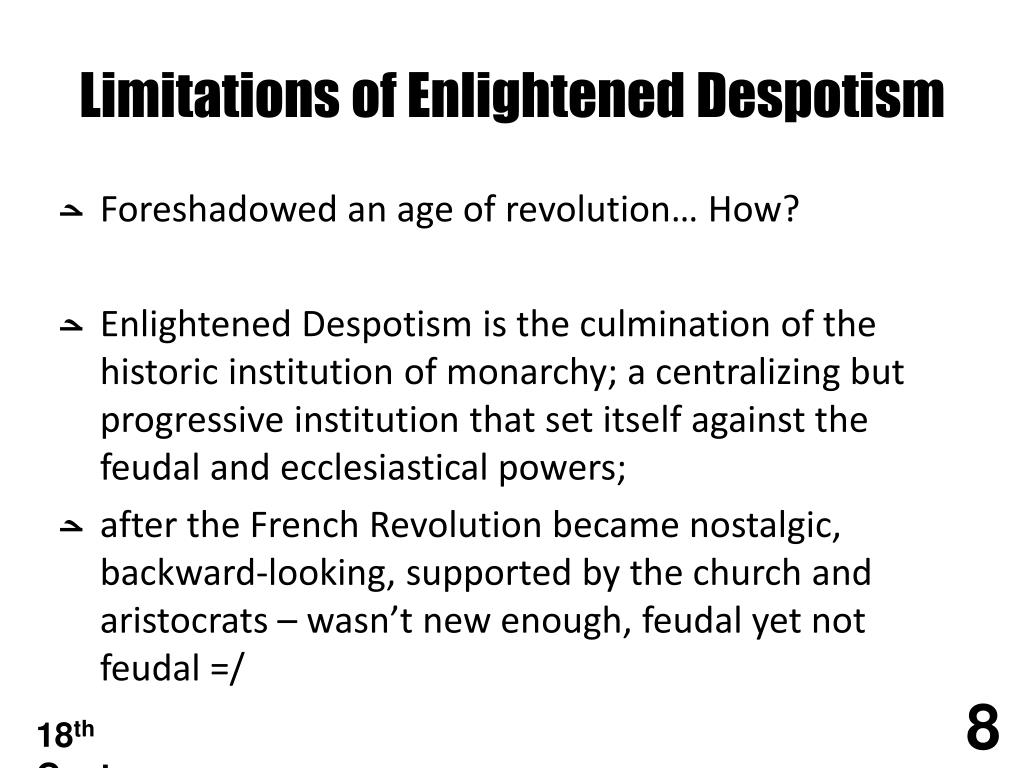Enlightened despotism was impaired by the problem of succession. So long as monarchs came to the throne by the accident of birth, there was nothing to prevent the unenlightened or incapable from succeeding the enlightened and able.
Even the least of the enlightened despots deserves credit for having reformed some of the bad features of the Old Regime; but not even the best of them could strike a happy balance between enlightenment and despotism. Joseph II was too doctrinaire, too inflexible in his determination to apply the full reform program of the Age of Reason.
Pombal and Gustavus III were too arbitrary. Frederick the Great, obsessed with strengthening the Crown, entrenched the power of the Junkers, who were hostile to the Enlightenment. And in Russia events after the death of Peter the Great furnished another lesson in the difficulty of applying rational principles to political realities.

